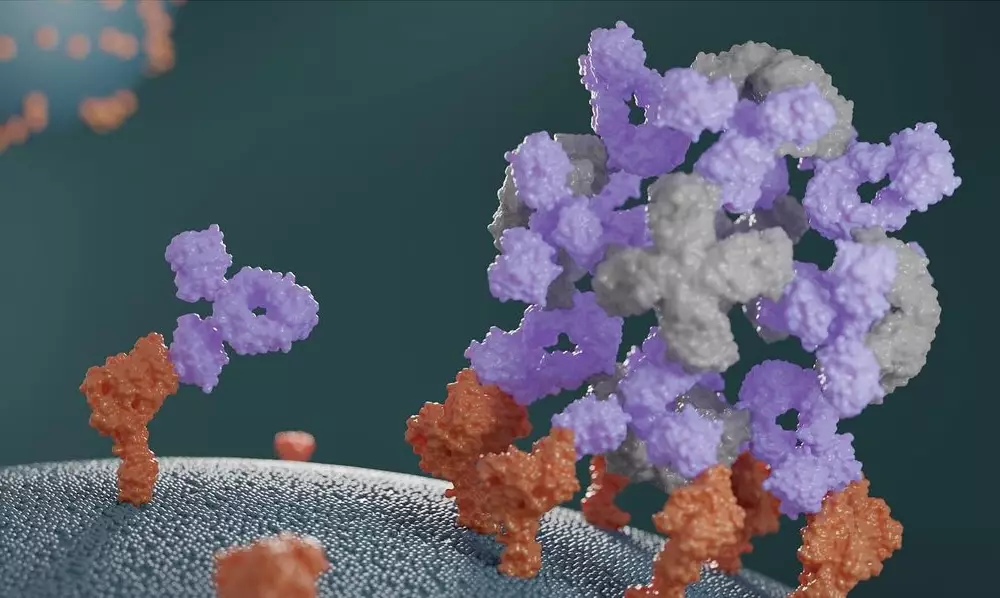Archon Biosciences is not just another biotech startup emerging on the crowded scene; it represents a leap forward in the integration of artificial intelligence in biological research. With a groundbreaking seeding round raising $20 million, Archon is positioning itself at the forefront of drug development by enhancing the efficacy of antibody treatments. The company’s innovative approach involves the use of specially designed protein structures dubbed “antibody cages” (AbCs), which are engineered to significantly amplify the effectiveness of traditional antibody therapies.
As the first enterprise spun out of the Baker Lab at the University of Washington, Archon stands on the shoulders of giants. Led by the esteemed computational biologist David Baker, who has recently been awarded a Nobel Prize for his advancements in protein design, Archon is harnessing the cutting-edge research developed by Baker’s team. This deep-rooted scientific heritage infuses Archon’s initiatives with credibility and innovative potential, underpinning their ambition to revolutionize biologic drug development.
Addressing a Critical Shortfall in Antibody Treatment
Despite the advancements in biological science, conventional antibody treatments face inherent limitations. The binding affinity of antibodies to their respective targets is often variable and unpredictable, undermining the effectiveness of treatment. Archon’s antibody cages offer a promising solution by providing a modular scaffold that brings multiple antibodies into closer proximity to target proteins. By enhancing the likelihood of binding interactions through structural design, Archon’s innovative approach may provide the critical leverage needed to improve therapeutic outcomes.
The Science Behind Antibody Cages
The underlying technology utilized by Archon is rooted in generative protein design—an advanced area of computational biology that employs AI and simulation techniques to predict and create novel protein structures. These antibody cages serve a dual purpose: not only do they increase the binding efficiency but they also enable researchers to conduct a deeper exploration of therapeutic possibilities. The potential applications for AbCs are far-reaching, extending well beyond current treatment paradigms and into the realms of both safety and efficacy.
As the biotechnology sector increasingly recognizes the value of combining computational algorithms with traditional biological techniques, Archon’s role becomes increasingly critical. Biologics, which include a variety of therapies derived from living organisms, have changed the paradigm of medical treatment. Archon’s proprietary platform promises a streamlined approach to biologic development, harnessing advances in rapid manufacturing and in-house testing. This could lead to the quicker arrival of novel therapies to patients in urgent need, a vital benefit in today’s fast-paced pharmaceutical landscape.
The confidence shown by investors in Archon, evidenced by the successful funding round led by Madrona Ventures and supported by prominent players such as DUMAC Inc. and Alexandria Venture Investments, reflects a growing interest in the potential of biotech startups committed to harnessing technology within drug development. This financial support, in tandem with $7 million in grants from various institutes and government agencies, sets a solid foundation for Archon to advance their ambitious plans.
With its base in Seattle—an emerging biotech hub—Archon signifies the vibrant intersection of academic research and entrepreneurial spirits, capturing a moment where innovation is not just about the next breakthrough but how that breakthrough is brought to market. As TechCrunch prepares to delve deeper into Archon’s journey, the industry watches with anticipation; not only will this venture redefine antibody treatment strategies, but it may also inspire an entire generation of biotech innovations that leverage AI to solve complex biological challenges.
Archon Biosciences exemplifies a significant advancement in biotechnology, offering a glimpse of the future where artificial intelligence and innovative protein design converge to create transformative healthcare solutions. As the startup continues to develop and refine its approaches, the implications for medicine could be profound, hinting at a new era of efficacy in antibody-based therapies.

